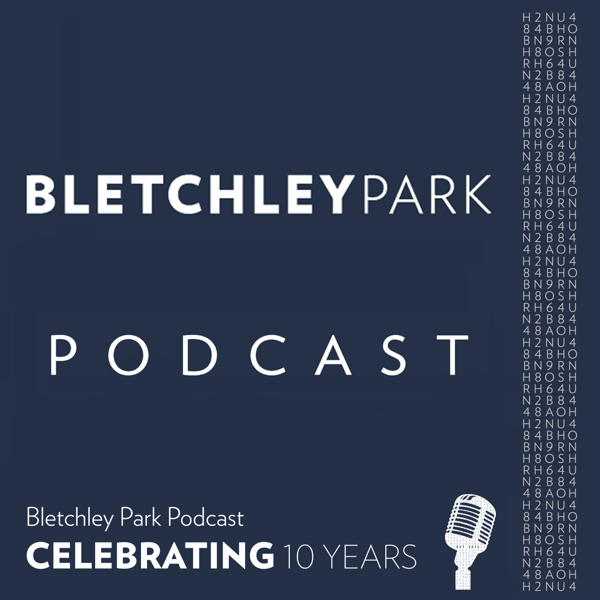Bletchley Park Presents Gordon Corera
Bletchley Park
Bletchley Park
4.8 • 177 Ratings
🗓️ 17 September 2015
⏱️ 3 minutes
🧾️ Download transcript
Summary
September 2015
On 18 October the BBC’s Security Correspondent, Gordon Corera, will give a talk at Bletchley Park about his new book which traces the intertwined history of computing and espionage, Intercept – The Secret History of Computers and Spies.
The computer was born to spy. Under the intense pressure of the Second World War and in the confines of Bletchley Park, the work of men like Alan Turing and Tommy Flowers led to the birth of the computing age. It was a breakthrough that helped win the war and which cemented the importance of signals intelligence and also a close alliance between the US and UK. In the following decades, computers transformed espionage from Cold War spy hunting and providing advance warning of nuclear war through to today’s data driven pursuit of terrorists and industrial scale cyber-espionage against corporations. Gordon Corera reveals for the first time how – beginning at Bletchley - the history of computers has been shaped by spying and in turn how spying has been changed by computers. He will look at the legacy of Bletchley and how it matters for us all.
He told the Bletchley Park Podcast how a book about technology turned out to be a book about people.
Tickets are available from the Bletchley Park online shop https://www.bletchleypark.org.uk/shop/p.rhtm/130872/908465-BletchleyParkPresents_GordonCoreraSunday18_October.html
#BPark, #Bletchleypark, #Enigma, #History
Transcript
Click on a timestamp to play from that location
| 0:00.0 | On the 18th of October, Bletchley Park presents Gordon Carrera. |
| 0:08.6 | The BBC security correspondent will give a talk on his book, Intercept, The Secret History of Computers and Spies, |
| 0:15.5 | from Bletchley Park to modern cyber espionage. |
| 0:20.0 | What I enjoyed about the book is the stories, |
| 0:22.2 | and some of the stories, you know, |
| 0:23.6 | whether it's about the characters |
| 0:25.1 | and researching some of the characters from the Second World War, |
| 0:27.9 | whether it's Turing or Tommy Flowers, |
| 0:30.1 | whether it's some of the Americans who came to Bletchley. |
| 0:32.0 | I think that's a fascinating story, |
| 0:33.3 | and I try and tell that and quite a lot of detail in the books, |
| 0:35.4 | I think it's the birth of this modern communications intelligence relationship. But then, you know, if you go through into the |
| 0:42.0 | modern world of hackers and computers, you know, there's some really fascinating stories there |
| 0:47.0 | about some of the people who've been involved in it, some of the people who are the first to spot |
| 0:50.5 | how computers could be hacked and could be manipulated and some of the risks that |
| 0:55.3 | were there from the 60s, from the 80s. And, you know, I enjoy those stories. It's much more |
| 0:59.5 | about the stories than it is about, if you like, the simple technology of it. Well, it comes down |
| 1:05.0 | to people. You know, we think it's all about machines, but actually machines are built and |
| 1:08.4 | designed by people. They're used by by people if there's a lesson from |
| 1:11.9 | bletchley of course in breaking you know enigma and some of the other traffic it's that you can design a |
| 1:16.4 | very good machine but some of the weaknesses are the way people use it you know people are still the |
| 1:20.2 | ones who have to input those codes and we know what settings they use but short cuts and the |
... |
Please login to see the full transcript.
Disclaimer: The podcast and artwork embedded on this page are from Bletchley Park, and are the property of its owner and not affiliated with or endorsed by Tapesearch.
Generated transcripts are the property of Bletchley Park and are distributed freely under the Fair Use doctrine. Transcripts generated by Tapesearch are not guaranteed to be accurate.
Copyright © Tapesearch 2025.

